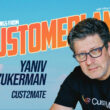77% of respondents want to control who can access their data.
The Internet has done a lot of good as far as helping people to manage their everyday lives, to conduct business, stay in touch with friends and family, and everything else from planning a trip to making purchases. But does all this convenience come at a cost? The sharing and selling of consumers’ data by companies is a hot topic now, but how much do people really know? Invisibly used it’s Realtime Research tool to poll 1320 people to find out what they think about companies profiting from their data.
Data Privacy Highlights
- 79% of people do not approve of companies profiting from their data.
- 71% of respondents know that companies routinely profit off their data while 29% of respondents were unaware.
- 77% of respondents want to control who can access their data.
- Men are more likely to be aware that their data can be sold for profit.
Data Privacy Results
The majority of respondents, 79%, did not approve of companies profiting from their data. This included people across all age ranges including 74% who were under 24, 87% aged between 25-40, 85% aged between 41-54, and 87% of respondents aged 55 and over. In terms of gender, 83% of male respondents, 79% of female respondents and 68% of non-binary respondents don’t approve of companies profiting from their data. 71% of respondents know that companies routinely profit off their data while 29% of respondents were unaware. 77% of respondents want to control who can access their data.
The results show that 79% of respondents don’t approve of companies profiting off their data.
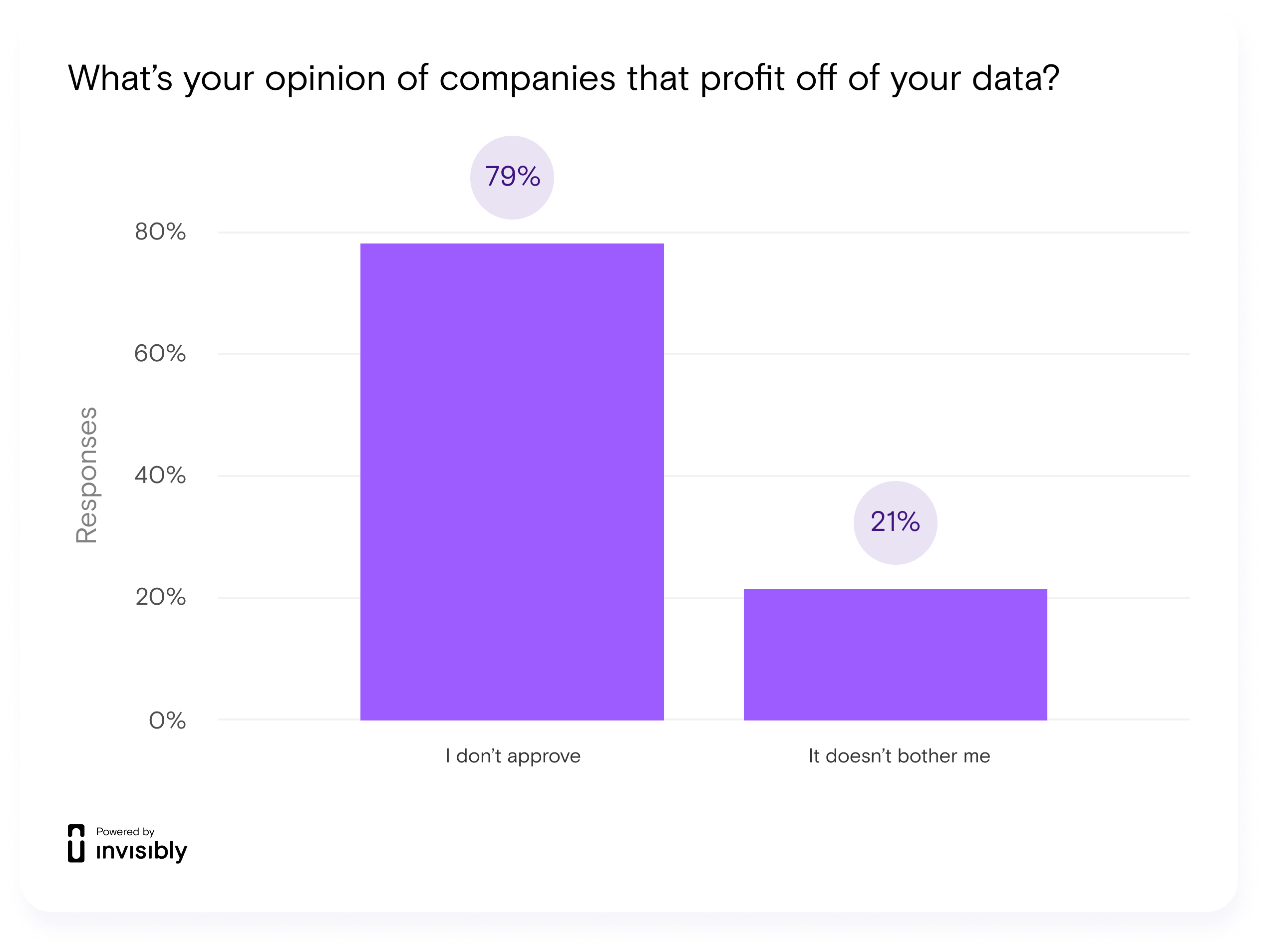
The majority of respondents within each age group do not approve of companies making money off their data. That includes 74% of respondents who were under 24, 87% of respondents aged between 25-40, 85% of respondents aged between 41-54, and 87% of respondents over age 55.
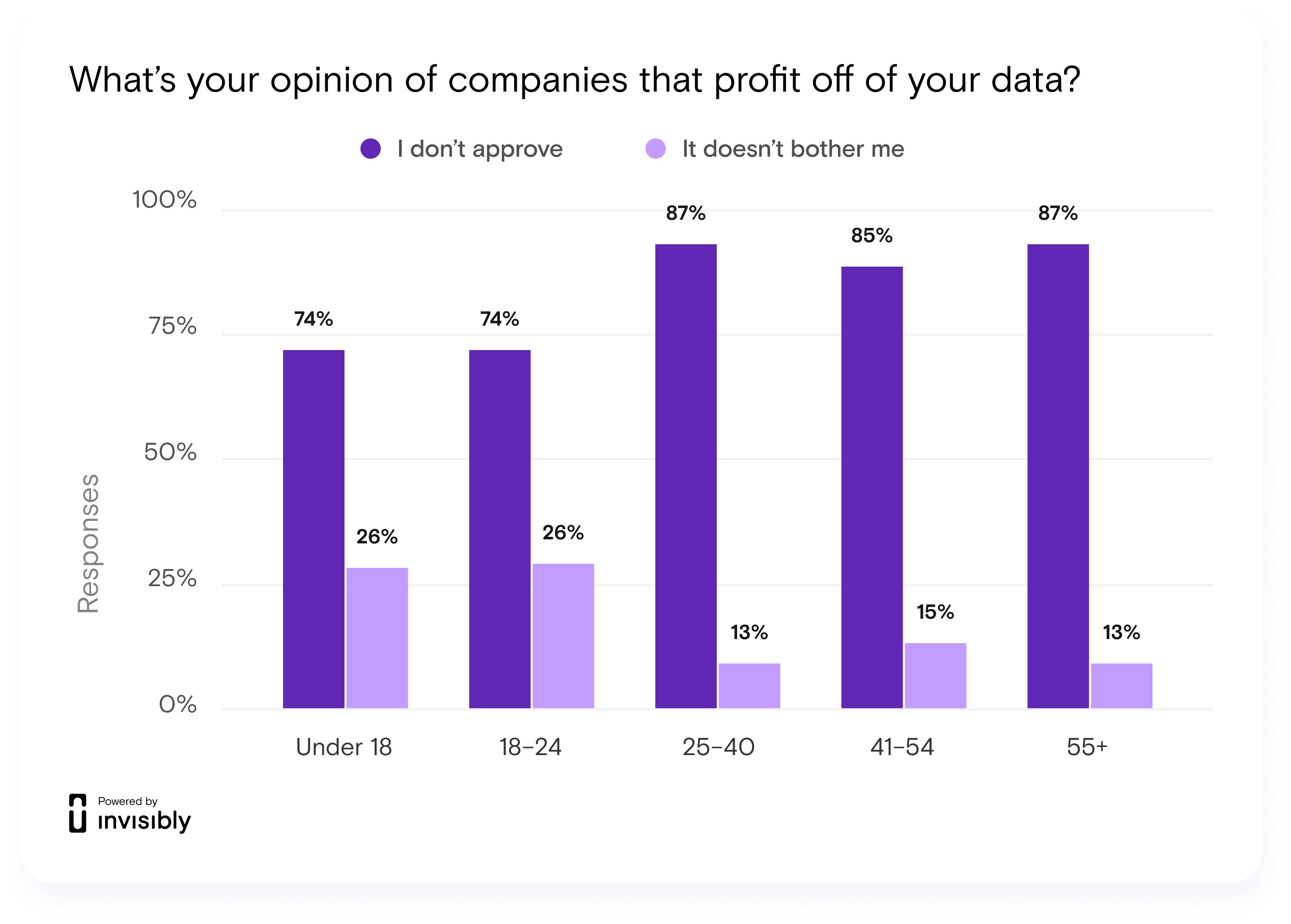
The survey revealed that 71% of respondents know that companies routinely profit off their data while 29% of respondents were unaware.
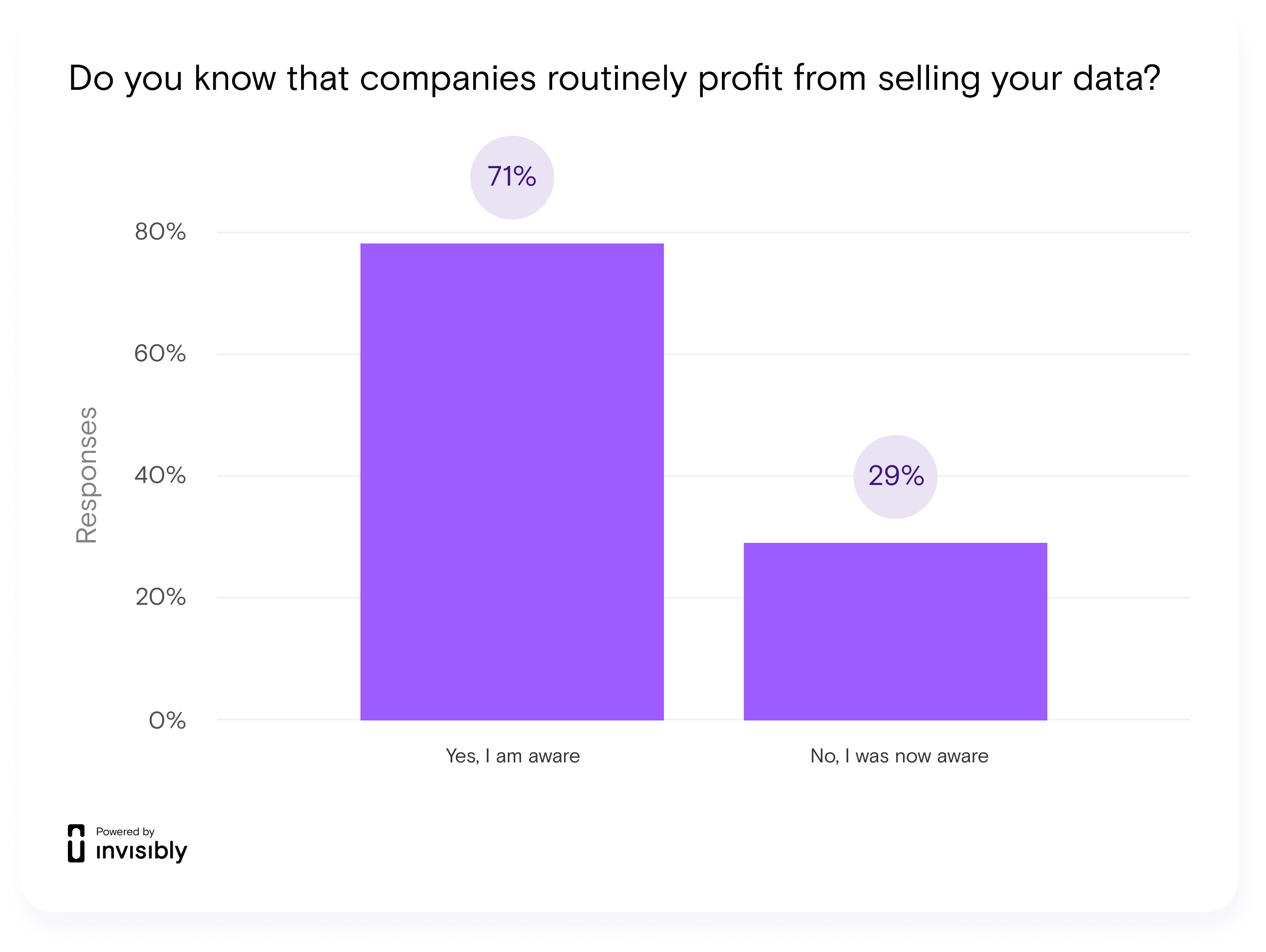
When it comes to awareness of companies profiting from their data, 82% of male, 65% of female, and 64% of non-binary respondents are aware that companies are profiting of their data while 18% of male, 35% of female, and 36% of non-binary respondents were unaware that companies were routinely profiting off of their data.
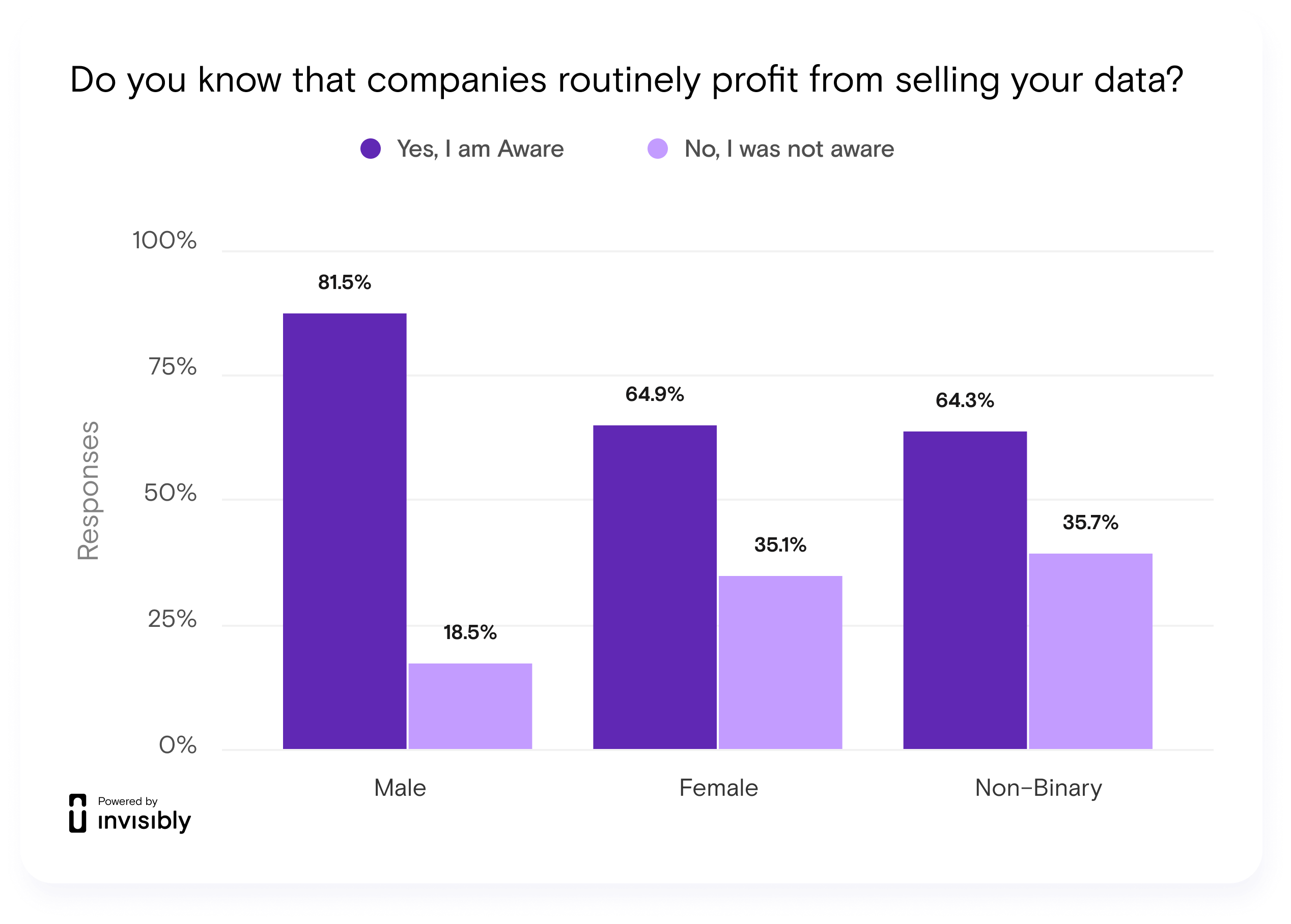
Most respondents within each age group are aware that companies are making money off their data. That includes 65% of respondents who were under 18, 68% aged 18- 24, 74% aged between 25-40, 85% between the ages of 41-54, and 80% of respondents who were 55 and over.
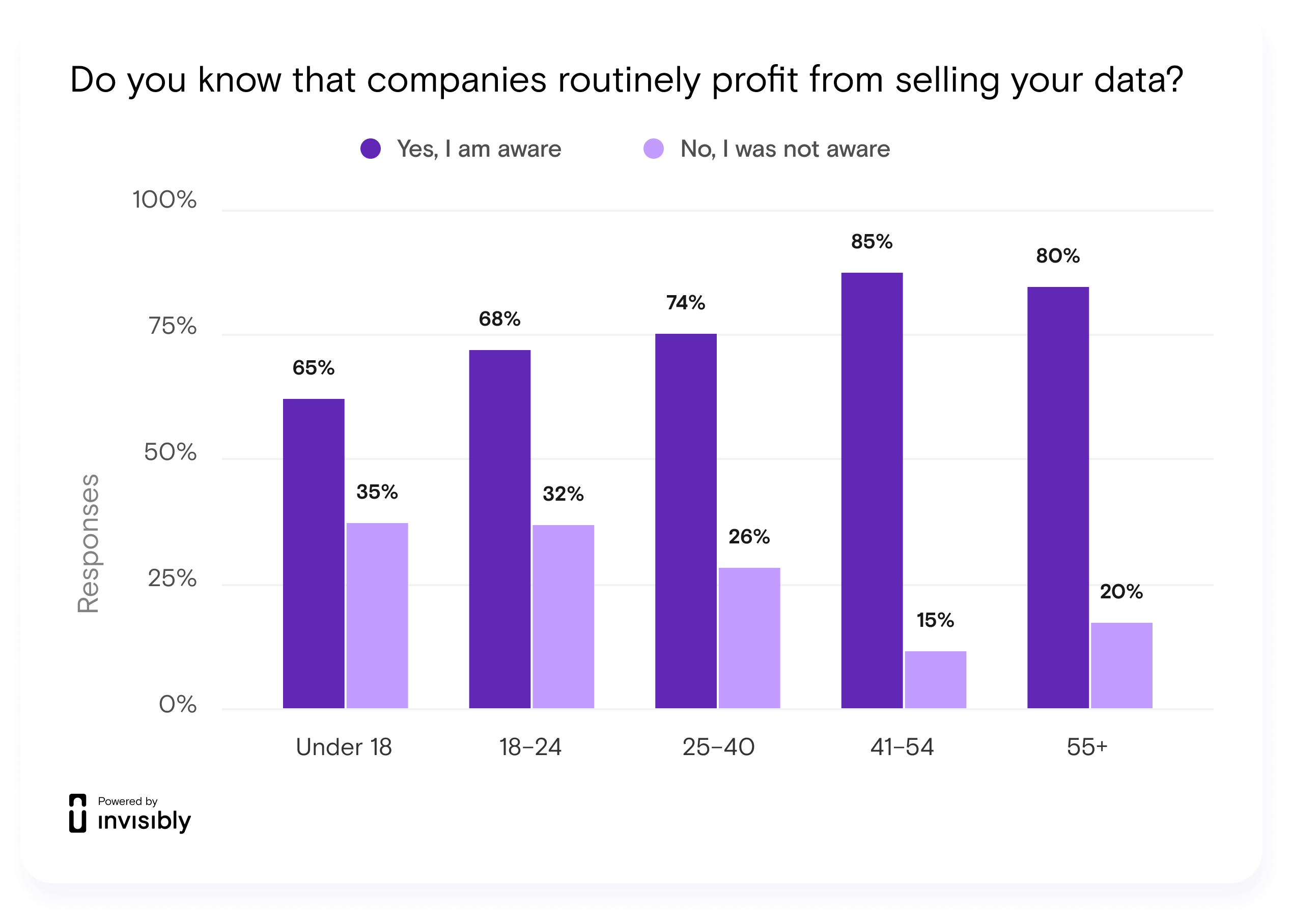
When asked about being able to profit from selling their personal data, 54% of respondents had no interest in doing so, but 46% did.
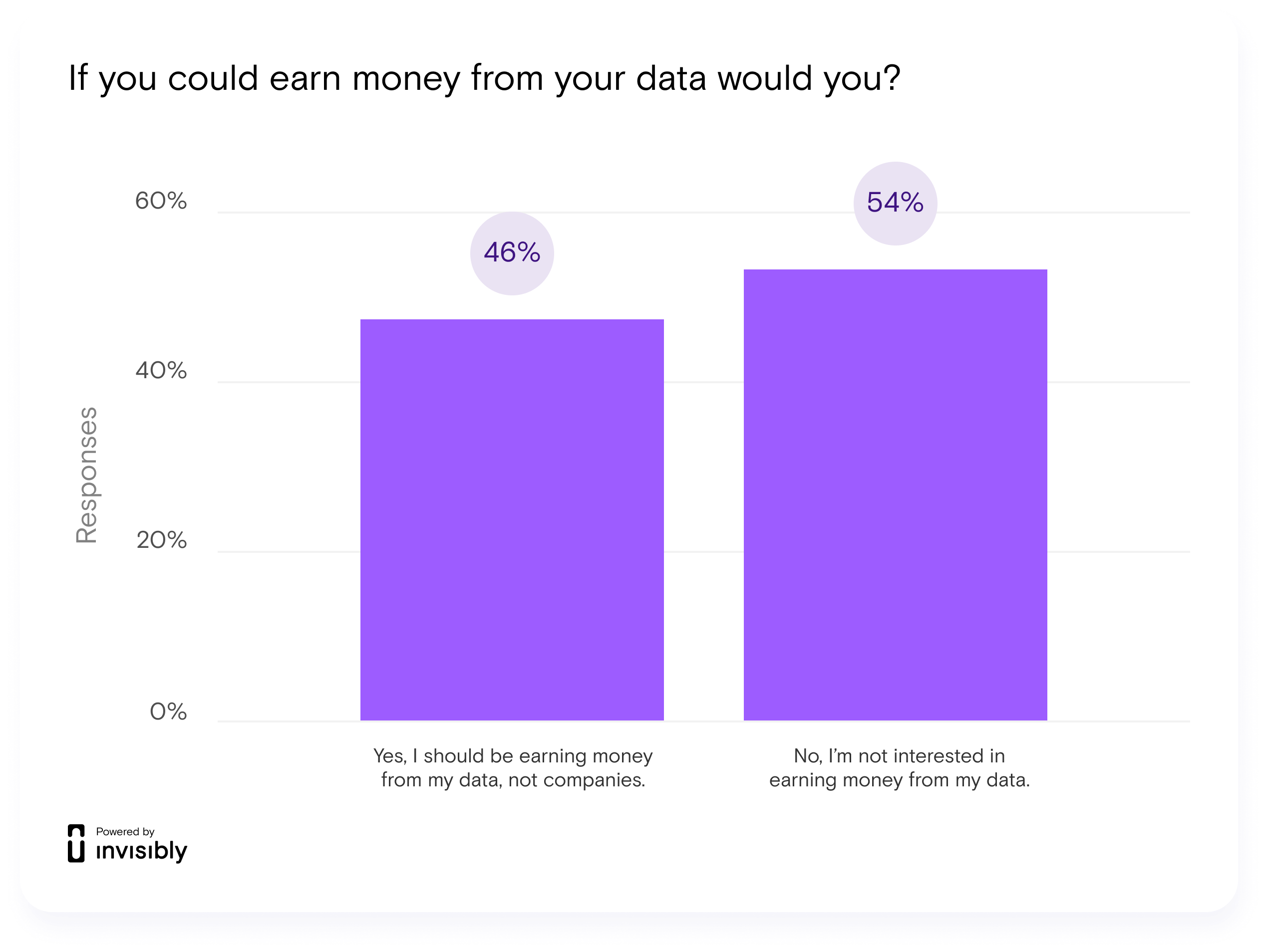
The survey data shows that 53% of male, and 52% of female respondents would earn money off their data if they could compared to 62% of non-binary respondents who aren’t interested in making money off their data.
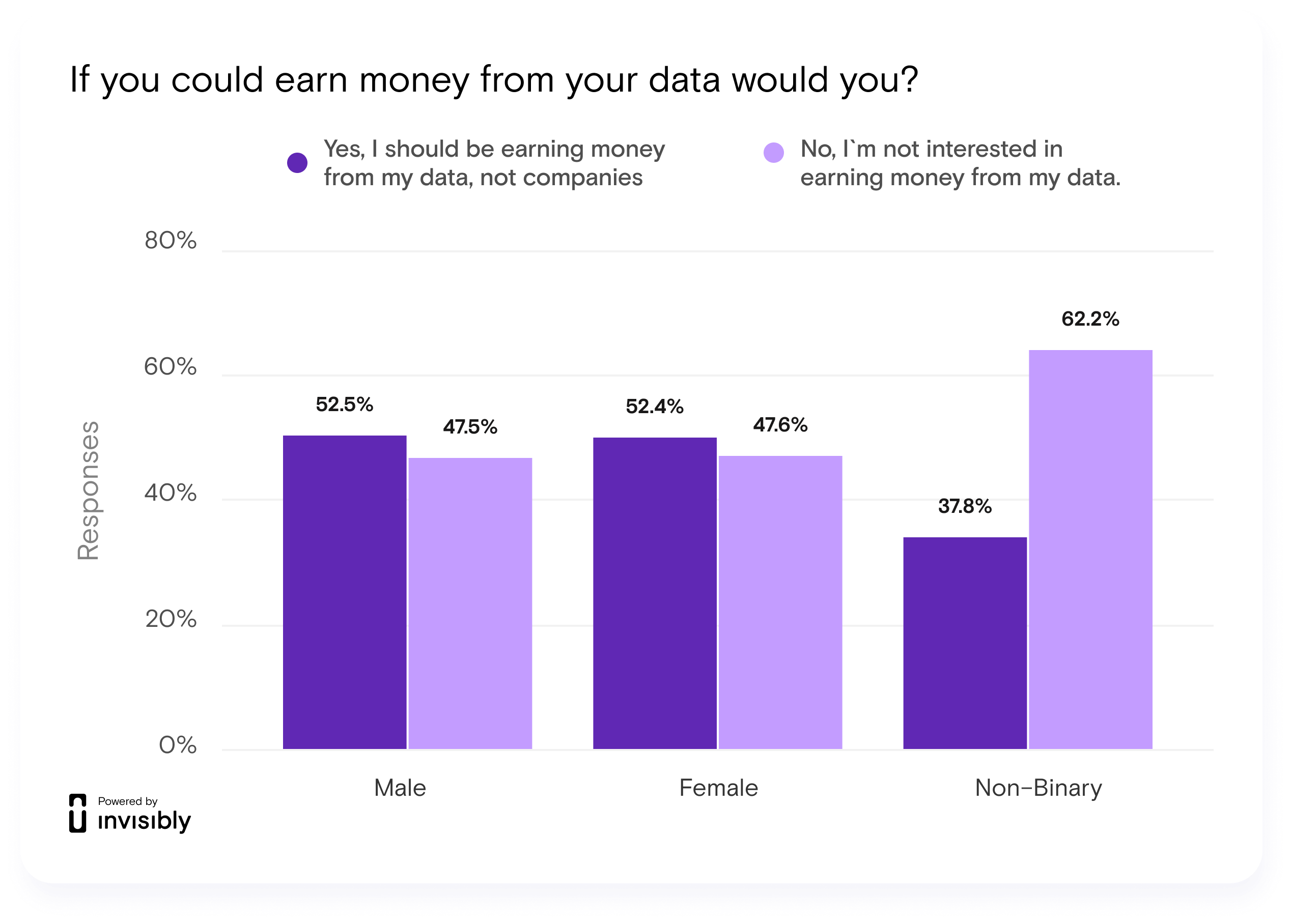
When asked about their interest in earning money from their data, 53% of respondents under 24, 51% between 25-40 and 50% between 41-54 said they are interested in earning money from their data. 61% of respondents aged 55 and over have no interest in making money off their data.
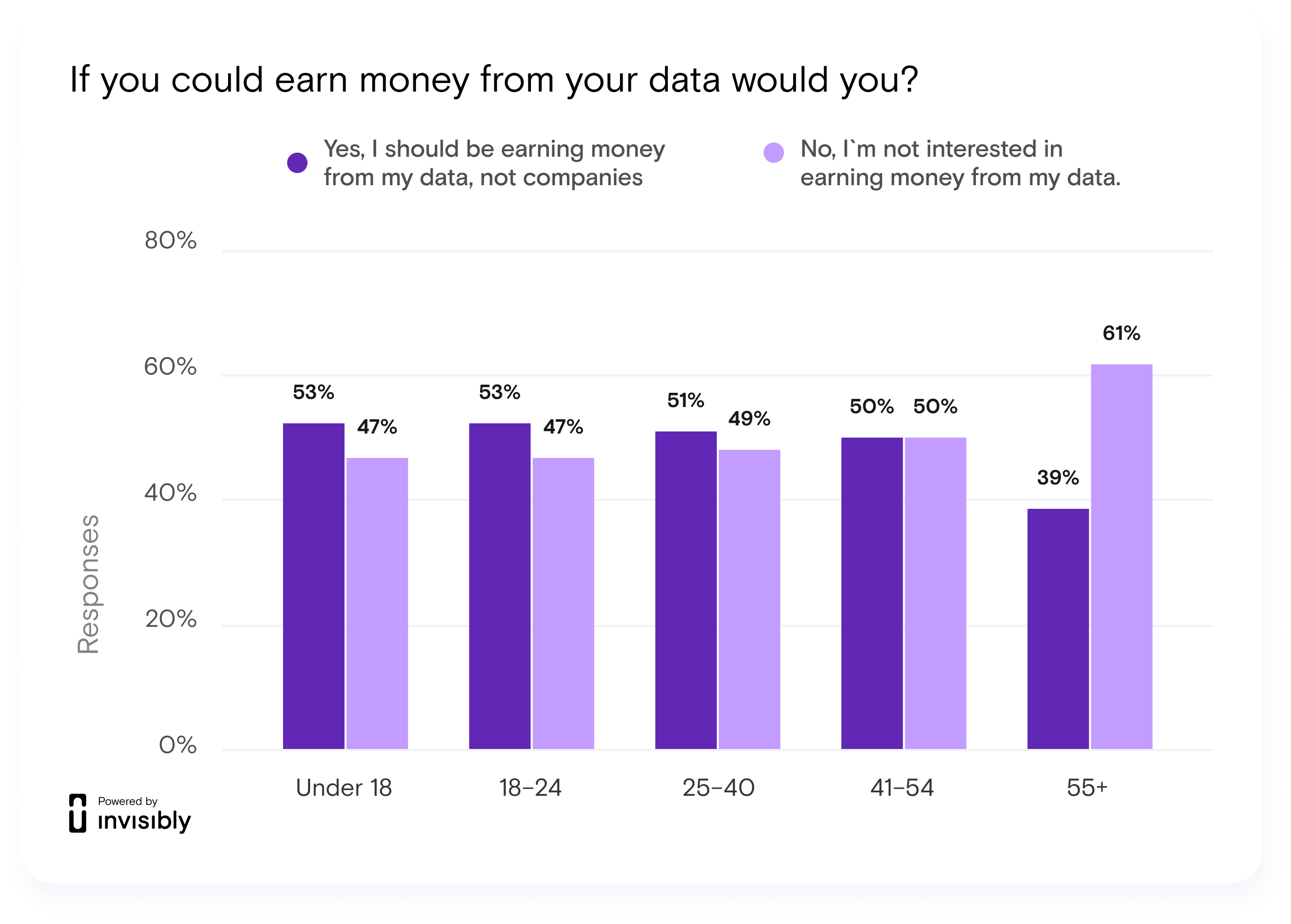
The survey shows that 77% of respondents want control of who can access their personal data.
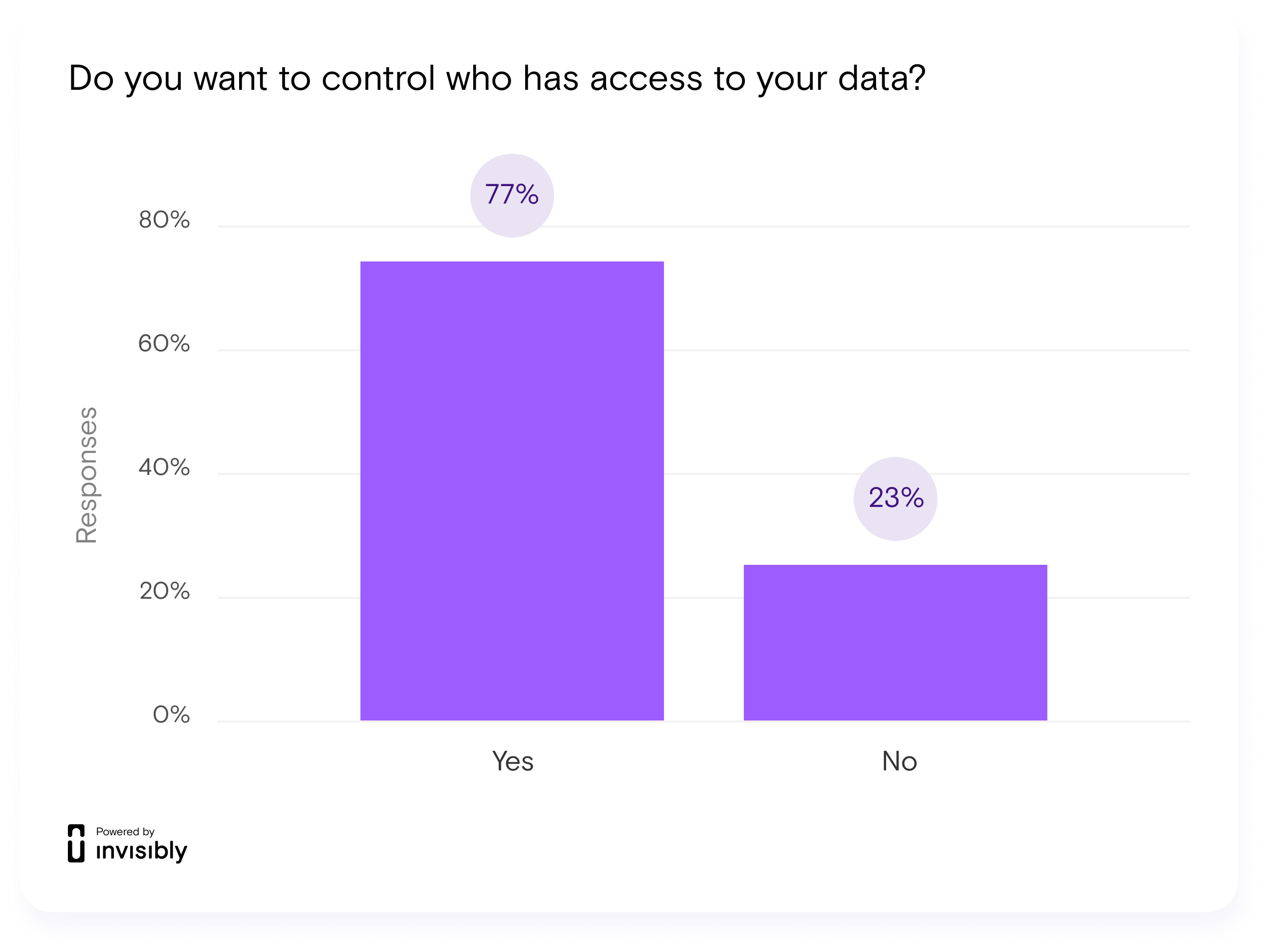
85% of male, 82% of female, and 59% of non-binary respondents want to control who has access to their data.
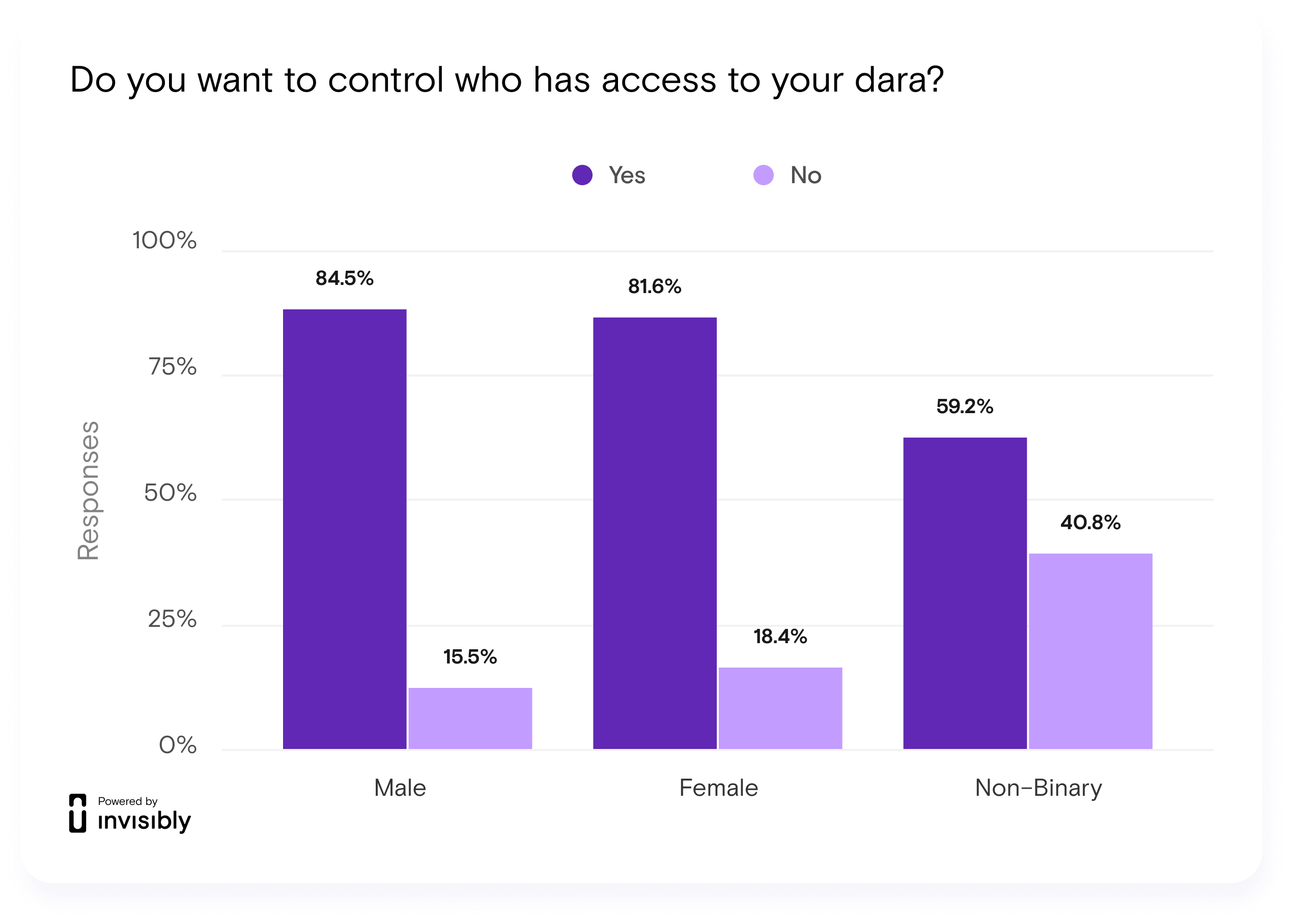
A majority of respondents in each age group want to control who has access to their data, including 75% of respondents under 18, 73% aged between 18-24, 82% between 25-40, 85% aged between 41-54, and 80% of respondents aged over 55.
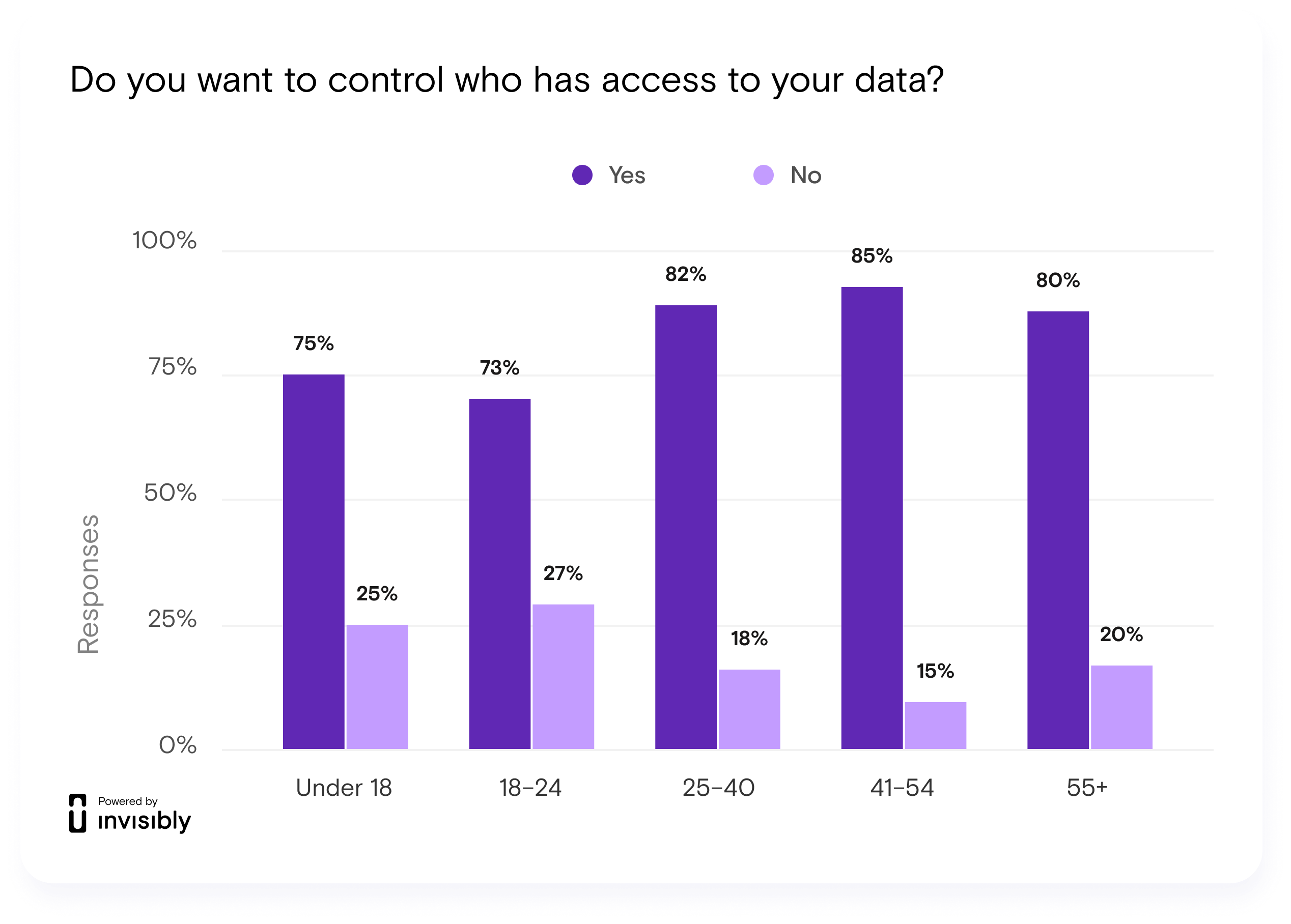
43% of respondents were under 18 years old, 17% were between 18-24 years old, 7% were aged between 25-40, 6% were aged between 41-54, and 26% of respondents were over age 55.
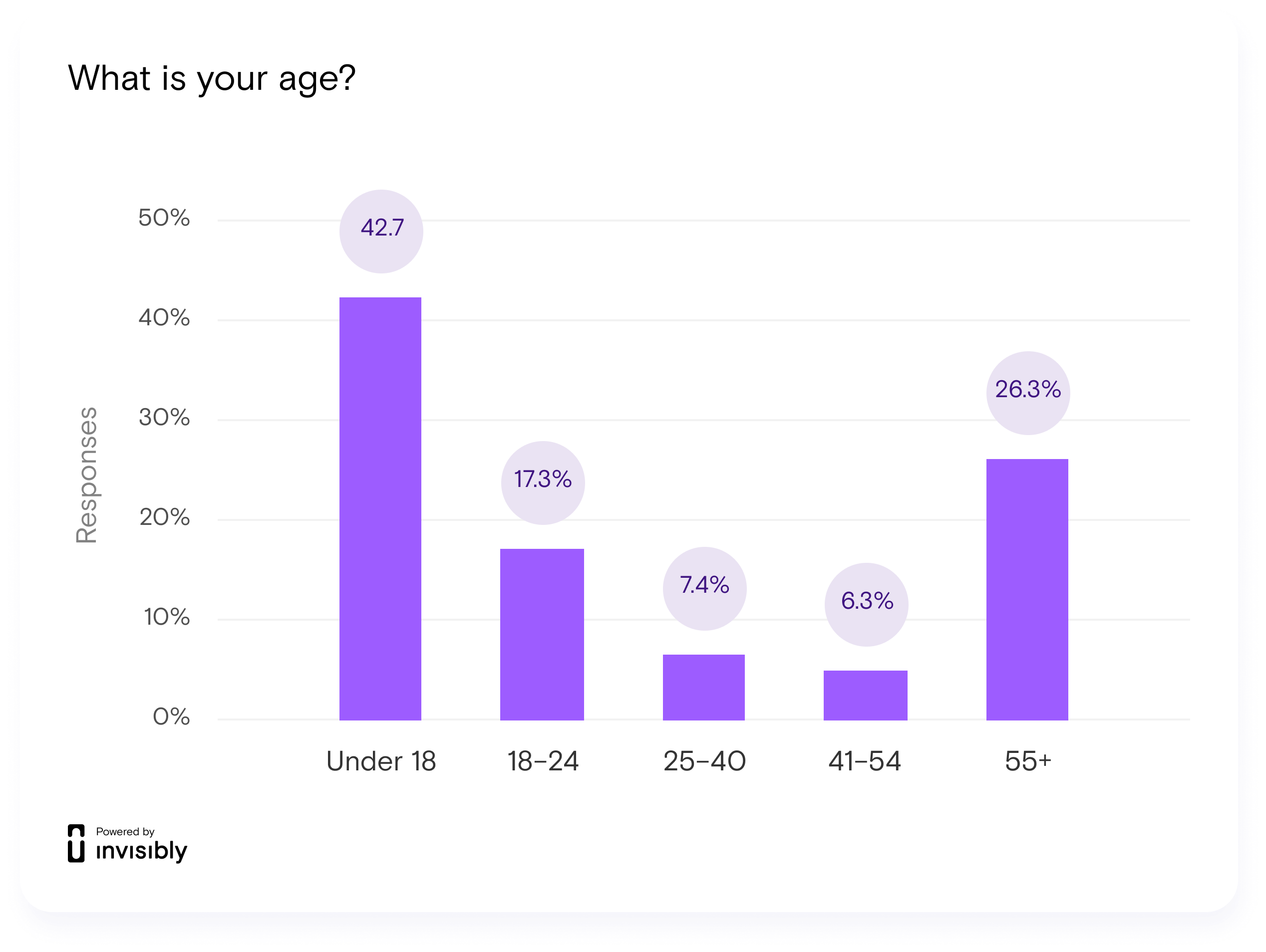
In regards to gender, 41% of respondents identified as male, 38% identified as female, and 20% identified as being non-binary.
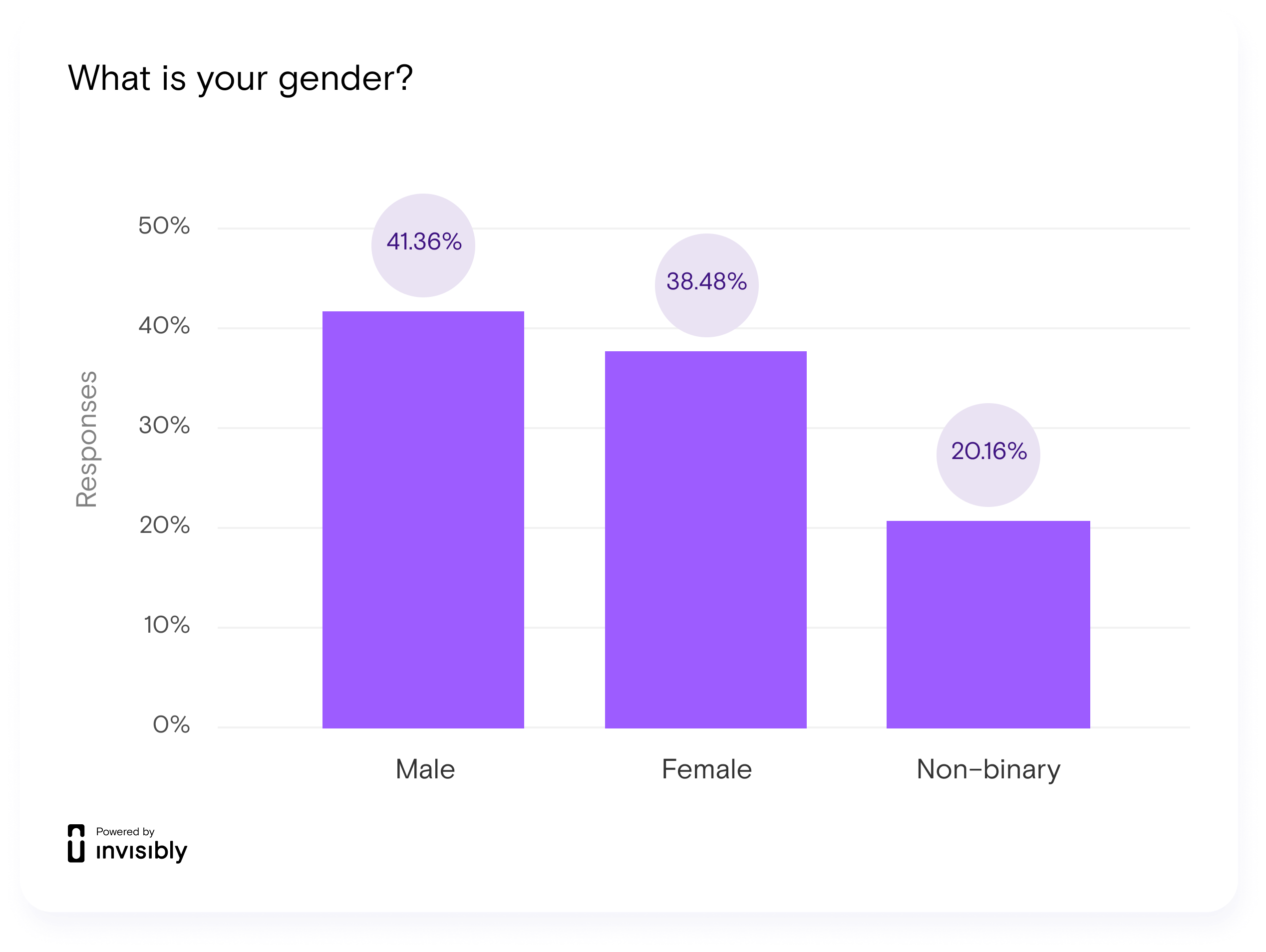
The Process
From April 23rd – May 3rd, 2021, Invisibly surveyed 1320 people to learn whether they approve of having their personal data sold for profit, how much they know about it, whether they want to have more control over what happens to their data privacy and if they had any interest in monetizing their data.
We Asked
- What’s your opinion of companies that profit off of your data?
- Do you know that companies routinely profit from selling your data?
- If you could earn money from your data would you?
- Do you want to control who has access to your data?
- What is your age?
- What is your gender?
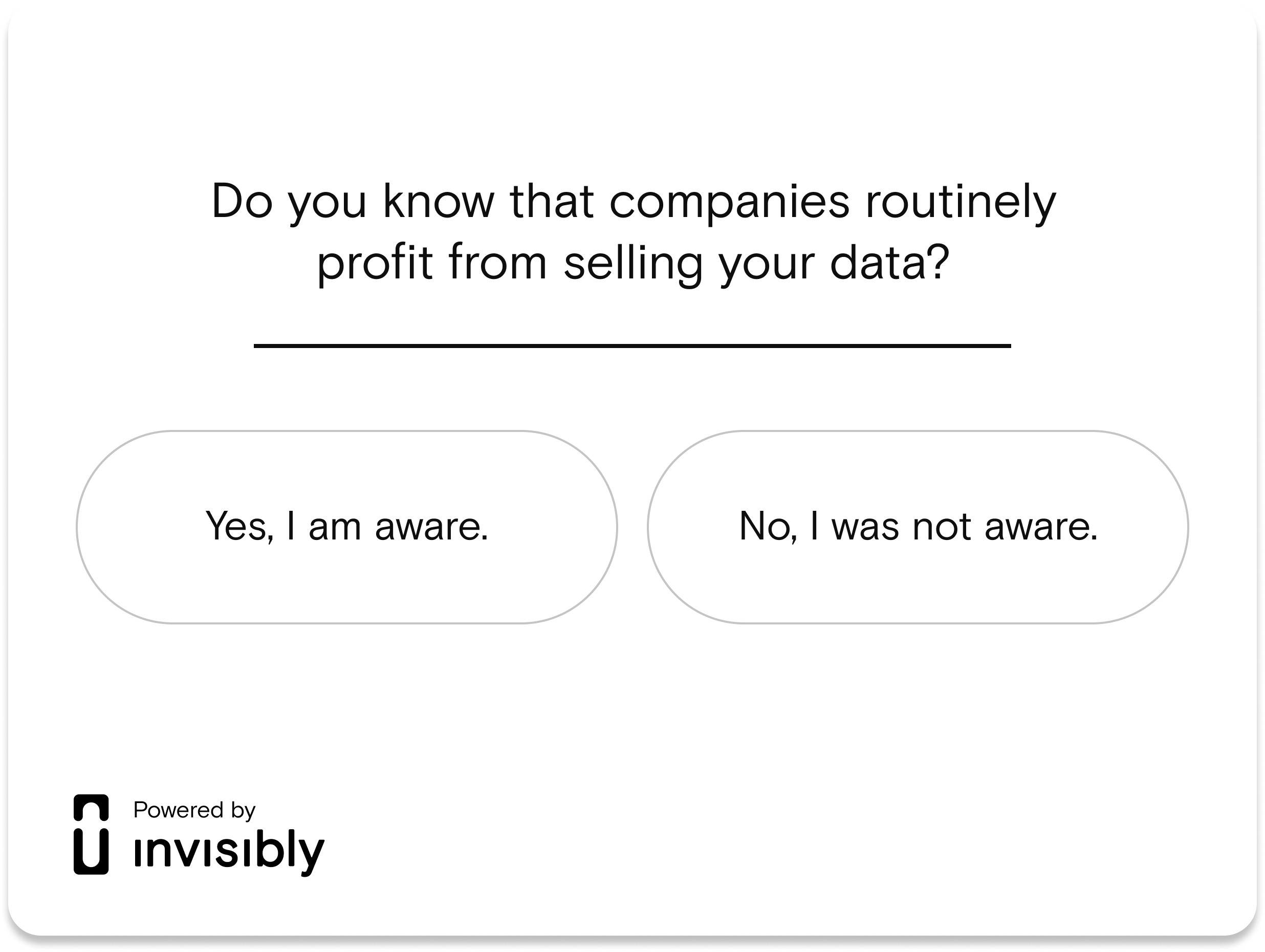
Discussion
It’s easy to forget that the convenience of using free apps, shopping online, and being able to communicate with people across the world at any time comes with the loss of data privacy and putting our personal information in the hands of companies that will make a profit on it. Never before have companies had more direct access to people’s likes, tastes and shopping habits as they do today.
It surprised us to see how many people are still unaware that companies profit off of data, and that men were more aware than women, but it is not at all surprising that a solid majority want their data to be private. In order to change how data privacy is handled, more people need to be educated on how their data is gathered and used. This will allow for a transition where people can make choices about who has their data and also begin to profit directly from their data. With nearly ¾ of people wanting control over their data, companies will find a way to make this happen and move to a model of consumer-consented data.
Invisibly Realtime Research surveys differ from traditional online surveys in that the questions are shown to the user on web pages in place of an ad (Figure 1). Unlike Google Surveys, which block access to content until the questions are answered, Realtime Research surveys are optional, thus ensuring that participants are responding voluntarily.
 Dr. Don Vaughn, Ph.D. is a neuroscientist, futurist, and communicator. As Head of Product at Invisibly, he is envisioning a better future by enabling people to take control of their personal data. He leverages his understanding of the brain to predict how people will use—and be used by—technology. Since graduating from Stanford, over 1 million people have viewed his TEDx talk. He has been featured on ABC, ESPN, Bloomberg and more.
Dr. Don Vaughn, Ph.D. is a neuroscientist, futurist, and communicator. As Head of Product at Invisibly, he is envisioning a better future by enabling people to take control of their personal data. He leverages his understanding of the brain to predict how people will use—and be used by—technology. Since graduating from Stanford, over 1 million people have viewed his TEDx talk. He has been featured on ABC, ESPN, Bloomberg and more.This article originally appeared on Invisibly. Photo by Jonatas Domingos on Unsplash.

